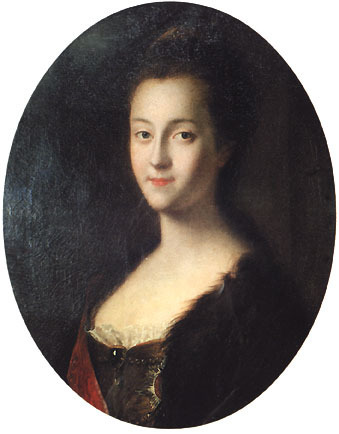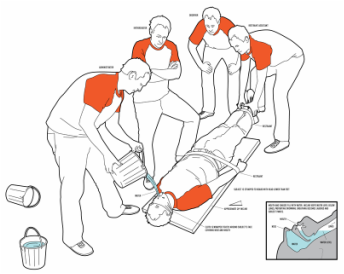|
Totally by coincidence, I am reading the wonderful biography by Robert K. Massie, “Catherine the Great: Portrait of a Woman,” and happened upon her very strong opinion of torture.
Catherine was one of the most intelligent monarchs in history – a minor Prussian princess imported to Russia as a wife for the insipid heir. She read and spoke French fluently and educated herself from lovers and advisors; she communicated with Voltaire and Diderot and other philosophes. And she soon took over the crown from her dangerously helpless husband, Peter III, who quickly died at some remove from her. In 1765, as empress, Catherine wrote series of “guiding principles” (Massie’s words), a Nakaz, which suggested changes in Russian laws. Even an empress had to run them past ministers and parliament, and she saw her thoughts whittled down considerably, but on July 30, 1767, she issued: “Instruction of Her Imperial Majesty Catherine the Second for the Commission Charges with Preparing a Project of a New Code of Laws.” One of the strongest passages was about torture. Massie, writing about the 18th Century, makes no link to the 21st Century, but he does note her words: What right can give anyone authority to inflict torture upon a citizen when it is still unknown whether he is innocent or guilty? By law, every person is innocent until his crime is proved…The accused party on the rack, while in the agonies of torture, is not master enough of himself to be able to declare the truth…The sensation of pain may rise to such a height, that it will leave him no longer the liberty of producing any proper act of will except what at that very instant he believes may release him from that pain. In such an extremity, even an innocent person will cry out, “Guilty!” provided they cease to torture him…Then the judges will be uncertain whether they have an innocent or guilty person before them. The rack, therefore, is a sure method of condemning an innocent person whose constitution is weak, and of acquitting the guilty who depends upon his bodily strength. Massie adds: “Catherine also condemned torture on purely humanitarian grounds: ‘All punishments by which the human body might be maimed are barbarism,’ she wrote.” I note from the Internet that several people have noted the link between her Nakaz and current events. (Catherine also condemned many facets of serfdom, or slavery.) She continued to rule with dependence on force and undoubtedly things went on (like the mysterious death of her husband) that were not unlike what took place in the dungeons of the KGB – or the interrogation pits of the American government. Nearly 250 years later. Catherine’s common sense and ideals still ring true
Brian Savin
12/15/2014 02:32:53 pm
There is a lot of power to "them" and "us" distinctions. I wonder of Catherine was speaking about treatment of her "own" Russian citizens and whether she held the same or a different view of foreign enemy agents. This basic tribal distinction reminds me of the now buried newsreel my grandfather saw at a movie theater at the end of WWII. President Truman was asked whether he was concerned about the enormous loss of human life apparently caused by the atomic bomb drops on Japan. His response was swift, "None of our boys." Times and contexts very widely.
George Vecsey
12/15/2014 03:38:07 pm
Brian, I haven't finished the book yet but I have not encountered the answer to your question. Peter the Great was often hospitable to captured "enemies" -- particularly sailors because he loved the sea. I haven't seen any example of how Catherine treated "foreign" prisoners. But she was way ahead of her adopted countrymen in regard to serfs, although she advocated total monarchy. Thanks for the stimulating question, George
Thor A. Larsen
12/16/2014 02:26:07 pm
George,
George Vecsey
12/16/2014 02:34:31 pm
Thor, great to hear from you. I got hooked on Massie with Nicholas and Alexandra and have kept going. His Peter the Great should be read before Catherine for obvious reasons. Peter was an amazing leader -- flawed but with some superb instincts. Curious. Visionary. I don't think he was against torture, however. Massie describes some of it. Best to you both, GV 12/17/2014 03:34:58 am
George
George Vecsey
12/17/2014 11:23:03 am
Alan, never knew that about Benzion Netanyahu. Interesting. Best, GV
Ed Martin
12/17/2014 05:10:44 am
I doubt there is a more thoughtful and literate blog anywhere. It is a tribute to your sensibilities George, that such people attend.
George Vecsey
12/17/2014 11:26:58 am
Ed, thank you so much. Comments are closed.
|
Categories
All
|











